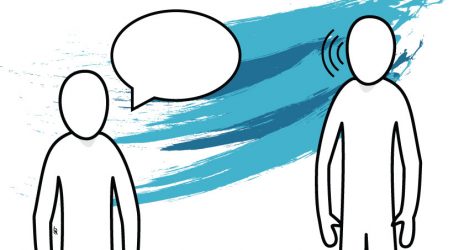What is self-awareness and why should leaders care?

What is self-awareness and why should leaders care?
“The point is not to become a leader. The point is to become yourself, and to use yourself completely – all your gifts, skills and energies – to make your vision manifest. You must withhold nothing. You must in sum, become the person you started out to be, and to enjoy the process of becoming.” Dr. Warren Bennis – On Becoming a Leader
Ever since Bennis’s bestselling book was published in 1989, the field of leadership has been evolving fast. Today we have access to high quality literature and reliable studies on the topic, that have educated us on what leadership is all about. In fact the transparency that technology now offers, makes it much easier for us to determine between good and bad leaders. And this development has raised the bar for today’s leaders. In order to have a positive influence and deliver sustainable value, leaders need to know who they are and how they impact others.
Given the clarity of available data, it is surprising to see how few leaders demonstrate solid self-knowledge and awareness. In fact it is quite likely that we have all experienced this first hand. Here are a few examples:
- One leader is very impatient and inconsiderate and regularly annoys employees with pushy sentences that may be disrespectful, as they seek to follow up on projects. This causes employees to keep their distance and feel uncomfortable in the leader’s presence.
- Another appears to take criticism personally and becomes defensive far too quickly. This behaviour causes people to become verbally cautious in the leader’s presence and open and honest cooperation is hampered.
- A third tries to complete all important tasks on their own and struggles to delegate. Besides being a declaration of distrust towards their own team, this type of behaviour slows productivity down and causes frustration.
Although the three examples above cover different issues, they do have one thing in common; they seldom see themselves as the cause of a problem. Deprived of sufficient self-awareness, they do not see a reason to change their own behaviour.
As leaders climb higher up the corporate ladder, self-awareness becomes MORE important. In a study conducted by Green Peak Partners for Cornell University back in 2010, the following was revealed: In the recruitment of senior managers, self-awareness is not a deeply considered factor. This is a clear mistake, as the study reveals self-awareness as the biggest factor in determining future success. As an example, it makes leaders more likely to hire people that compensate for their own weaknesses. It also makes them more open to others having better ideas than them.
Here are 6 ways to get to know yourself better and raise the awareness of your own strengths and weaknesses:
1. Develop an open mindset towards the people around you. They are all different, intricate personalities and it is difficult to connect to and lead people we do not understand.
2. Use technology to understand yourself better. Personality profiling tools have never been more accurate and powerful and they bring clarity on who we are. Ask your HR department about tools such as MBTI, DISC, 16PF and then add a customised 360° Insight report for multiple perspectives.
3. List your own strengths and weaknesses, be open about them and develop your team in ways that compliments who you are.
4. Seek the opinion and advice of people you trust. Develop your own “Mastermind Group” focused on personal and professional growth.
5. Develop the connection to your inner self. Mindfulness exercises and meditation are good methods to connect to your core.
6.Take time regularly (even 20 minutes per week help) to look in the rear view mirror and reflect. It is the hallmark of a strong leader to reflect and develop their alignment with their most important values.
Know your core and be aware of your impact. This maximises your leadership influence.
Author: Thor Olafsson | Strategic Leadership




